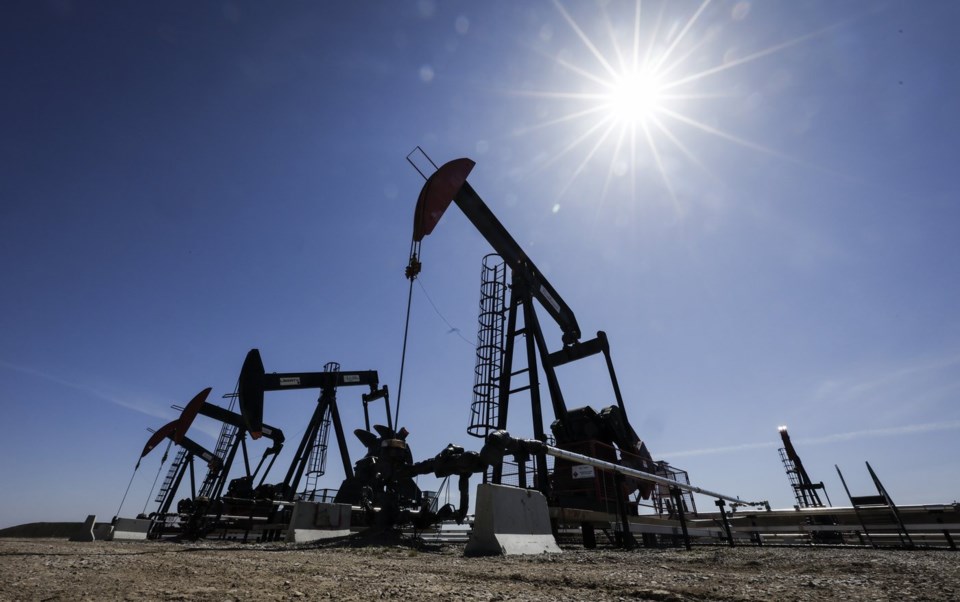OTTAWA — Climate activists and energy leaders say Prime Minister Mark Carney will need to make some hard choices on whether to bolster the country’s oil and gas sector as means of achieving economic stability.
Throughout the election campaign, Carney signalled an openness to building more pipelines in Canada and promised to cut approval times to get projects built faster. He also acknowledged during the English leaders' debate that having western Canadian oil flow through the United States to Ontario and Quebec presents a national security threat.
But he also has said he wants to keep Canada’s emissions cap on oil and gas production in place, and to strengthen the industrial carbon price — policies the oil and gas sector has called on him to scrap.
Carney also campaigned on making Canada a "world leader" in carbon capture and introducing investment tax credits to support clean energy and technology.
While Carney said before the campaign he would keep the emissions cap in place, Alberta Premier Danielle Smith has said the prime minister told her behind closed doors that he wasn’t in favour of hard caps.
“We've heard Mr. Carney, in particular during the election campaign, adopt an ‘all of the above’ approach to energy and refusing to pick a lane between a cleaner, safer, renewable powered future and doubling down on the volatile fossil fuel status quo,” said Caroline Brouillette, executive director of Climate Action Network.
“I think that in 2025 we don't have the luxury of not picking a lane, both from an environmental side of things but also from an economic side of things.”
And Carney doesn’t have the luxury of time either, said Adam Waterous, chairman of oil and gas producer Strathcona Resources.
With the auto, steel and aluminum sectors reeling from U.S. President Donald Trump's tariffs, he said, Carney’s most powerful bargaining chip is Canada’s energy.
“Donald Trump has been very, very consistent for nine years. He ran on this originally, and now he wants one thing from Canada. And it's not fentanyl and illegal immigration, that's a head-fake. He wants an agreement to build Keystone XL,” Waterous said.
The Keystone XL project — a 1,900-kilometre pipeline that would have run from Hardisty, Alta., to the major U.S. crude storage hub at Cushing, Okla., and then on to Gulf Coast refineries — was first proposed during the Obama administration, which rejected it on environmental grounds.
It was then revived under the first Trump administration before then-president Joe Biden killed it again by revoking the pipeline’s permit on his first day in the White House in 2021. At that point, the project’s proponent TC mothballed the project.
Posting on his Truth Social account back in February, Trump called for the project to be resuscitated.
“Now, the industry doesn't want to build that,” Waterous said, adding the sector wants an east-west pipeline in order to diversify Canada’s oil and gas exports and reach overseas markets.
Oil and gas leaders laid out five demands in a letter to Carney shortly after the election. They called on him to, among other things, scrap the emissions cap regulations and repeal industrial carbon pricing.
The federal government could pursue the Keystone project on its own, Waterous said — but that could present a different roadblock.
“The United States will not enter into an agreement with a state-owned enterprise because it is considered a non-tariff trade barrier as a subsidized entity. It has to be a private sector party,” Waterous said.
But the project would be unlikely to get a private backer, he said, because "the energy sector doesn't want to do this. They want to go east-west."
"The energy private sector would be doing this to shelter auto, steel and aluminum. So you see the irony in this dynamic.”
— With files from Lauren Krugel in Calgary.
This report by The Canadian Press was first published May 12, 2025.
Nick Murray, The Canadian Press



